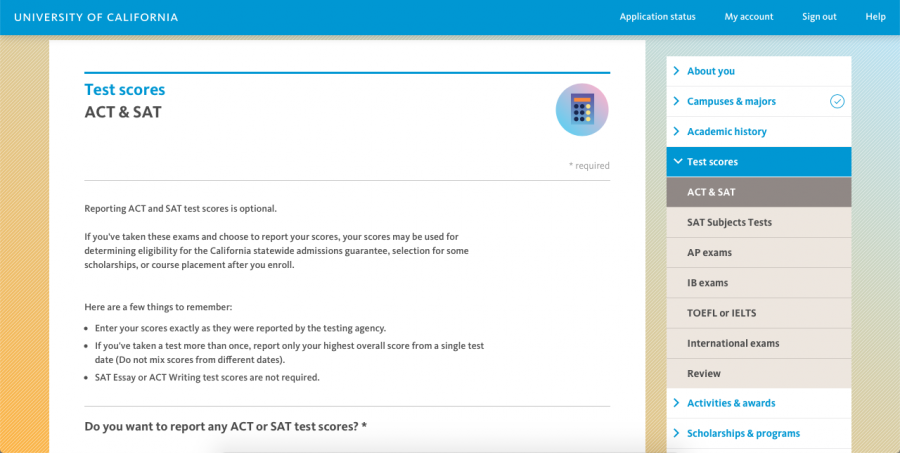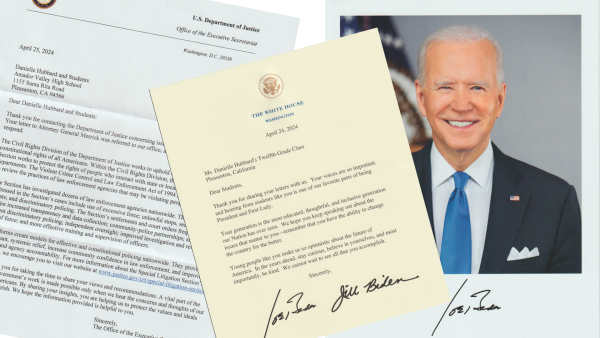UC applicants still must worry about placement based on standardized test scores
October 2, 2020
UC’s decision to transition into a test-blind application process has led to a variety of positive and negative impacts.
“A student could still choose to submit their score, but…it would not be considered for the admissions decision. It would be considered for other matters, [such as] course placement…certain scholarships that are offered at the university…the statewide eligibility guarantee,” said Janet Napolitano, the former UC president.
One of the factors taken into higher consideration in the admissions process is the quality of one’s senior year program. Students may consider taking their senior year more seriously in terms of both academics and extracurriculars in order to compensate for a loss of SAT/ACT impact.
“I think it’s important to highlight activities like school clubs, volunteer experiences, and competitions because as a high school senior, the GPA [you] submit to colleges is almost set in stone. . .[you] really want colleges to see who [you are] past the numbers,” said Shuchi Parikh (‘21).
Current highschool sophomores and freshmen will also experience a test-blind admissions process, though many remain set on taking it.
“I’m still planning on taking both the SAT and ACT. . .[b]ecause although the UCs have placed a test blind, other colleges, like out-of-state ones, have yet to do so. Plus, I might be able to earn certain scholarships, potentially saving me from. . .student debt,” said Simran Pandey (‘23).
There will not be a complete loss of standardized testing in the college admissions process, however. Those in the UC Board of Regents recognize the significance of test scores and hope to develop a new system for the graduating class of 2025 and beyond.
“[Developing a new testing system] reflects the university’s role in advancing something deep at its heart, and that is. . .educational equity. [T]he decision to go for a new SAT and drop the current test is [due to the fact that] the current tests do not represent what a university has said it’s wanting,” said Michael Brown, a member of the UC Board of Regents.
For those experiencing the new application system, the idea of null SAT/ACT scores may be a bit daunting. Despite this, the vast majority of students recognize the value of a test blind policy.
“[A] test blind admissions process definitely has some positive sides because the SAT/ACT might not be the best way to measure a student’s performance; it overlooks a lot of variables like how many times they’ve paid to take the test, test anxiety, issues on test day itself, tutoring, etc.,” said Nja Zuniga, an Amador graduate and current third-year at UCSC.
However, some fear that the policy changes may have a more negative implication.
“I probably would have had a more difficult time with a test blind application process. . .[a test blind creates] the loss of an opportunity to demonstrate your skills as a student, since some people rely on a good score as a trump card,” said Angelo de Jesus, a current senior at UCSC.
Ultimately, students should seek to adapt to the new admissions process and do the best they can.
“I think the best thing to do now is to not regret the things that have changed and just submit [our] best possible [applications] to college hoping for the best,” said Shuchi Parikh.













![The outgoing EICs [left to right] Zenil Koovejee, Aileen Hu, Ritika Gupta, Zaynah Shah, and Audrey Combs take a picture with journalism advisor Wendy Connelly to commemorate their last banquet.](https://www.amadorvalleytoday.org/wp-content/uploads/2024/05/458E2D9A--600x451.jpg)

